Politics & Security
INTERVIEW | China Using Huawei to Control Mass Communications and the Internet – Steve Bannon
Published
5 years agoon
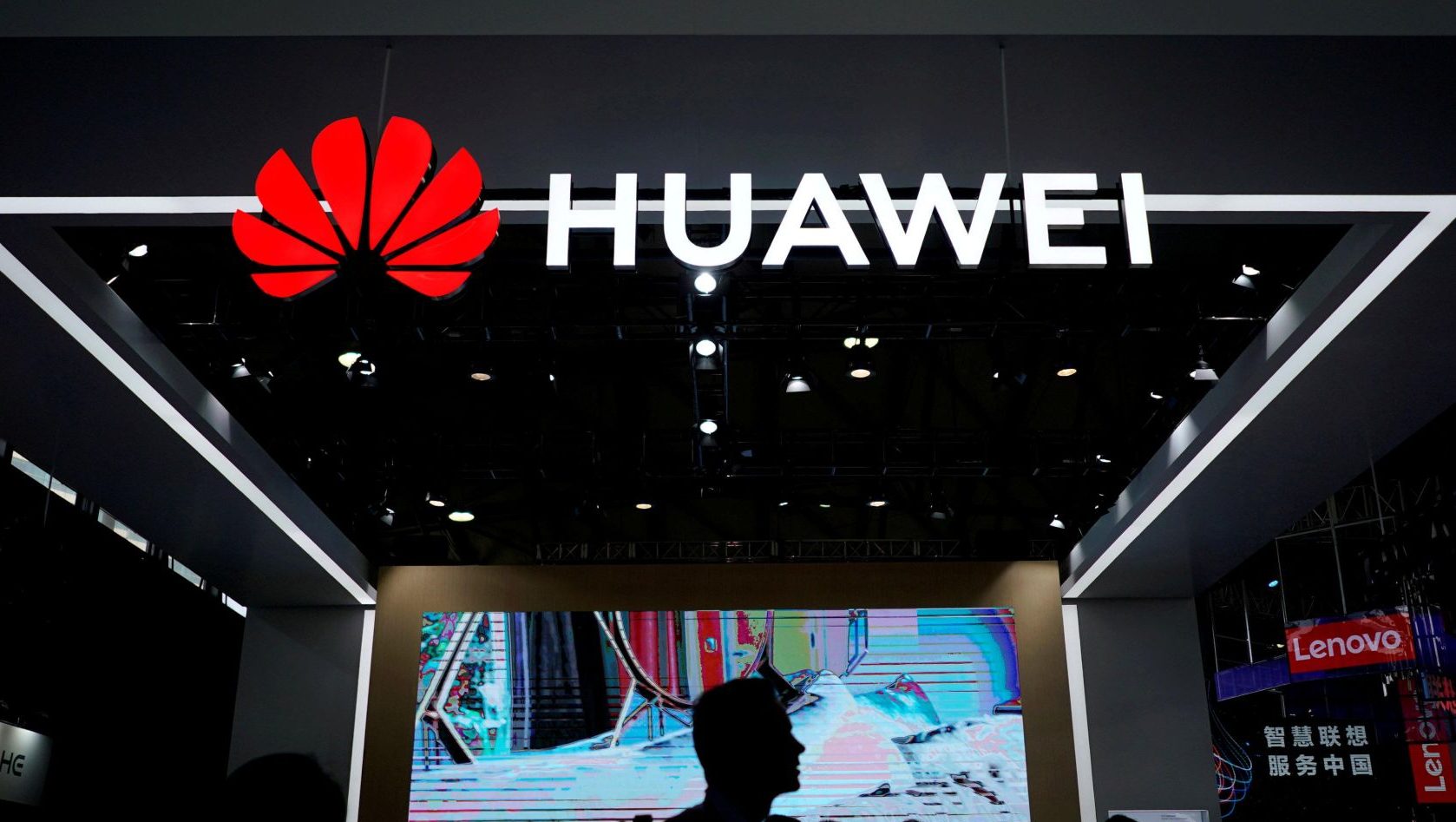
(Second of 3 parts)
Part 1: INTERVIEW | Steve Bannon: Trump-Kim Hanoi Summit Not A Failure, But A Process
Steve Bannon, former chief strategic advisor to U.S. President Donald Trump, cautions the U.S. and its allies on Huawei in his March 6 interview with The Sankei Shimbun and JAPAN Forward in Tokyo.
He warns that the international community should be aware that Huawei is essentially a front organization of the Chinese People’s Liberation Army (PLA). If the company controls 5G networks across the globe, the internet can be restrained by the PLA.
He clarifies that the Trump administration is negotiating with China in order to protect the rules-based international order and to counter China’s mercantilist totalitarian system. He also mentions the increasing tension in the Taiwan Straits.
The following are excerpts from the interview.
How do you see the relationship of Huawei and the Chinese People’s Liberation Army (PLA), and what do you think the U.S. government should do about this problem?
Huawei is a front organization for the PLA.
The first thing we can do is what we’re doing — extraditing the CFO [of Huawei from Canada]. And we’re going to put her up on criminal charges. If she gets to the United States after a lot of interviews, the prosecutors are going to requisition all the records, they’re going to see exactly where the influence peddling was, where the company’s been spreading money around.
Huawei’s in deep trouble. Huawei knows they’re in deep trouble. They’re being held accountable by the Department of Justice of the U.S. government. We’ll see how far this goes, but right now, it couldn’t be more serious. And it says a lot that Canada, which is not the most aggressive country in the world, is allowing her to be extradited.
The U.S. is a member of the Five Eyes intelligence alliance. Do you think the five countries and Japan ought to cooperate with each other on Huawei issues?
One hundred percent. In fact I’m more aggressive than that. I think the U.S. should use any commercial relationship we have to tell countries in Europe that you can’t use Huawei. We have to shut Huawei down.
Huawei is the People’s Liberation Army rolling out a 5G network throughout the world. In Europe, in Asia, sub-Saharan Africa, Latin America, the Caribbean. It’s going to have to stop. This is as serious as it gets. If the PLA control 5G, essentially it gives them a proxy for the next stage of high-tech development, quantum computing, the Internet 2.0, Internet of Things, plus the instantaneous sharing of mass amounts of data.
We can’t allow that to happen. I don’t think we’re going to allow it to happen.
People have to understand that this Huawei situation is not just some telecom company that the U.S. is picking on. This is the Chinese PLA that has inserted themselves into the free democratic countries of the world in a kind of 5th column — a stealth way to control mass communications and the internet.
Let us change the topic to U.S.-China bilateral trade negotiations. How do you see the negotiations? Will the U.S. only require China to buy more American goods?
I think that President Trump has two negotiations going on. One, you have these six verticals, of which [U.S. Trade Representative] Robert Lighthizer is leading [the talks] on technology transfer, state owned industries, currency manipulation, and fundamental restructuring of their economy.
Until we force them to restructure their economy, there are two different systems rolling here. You’ve got the international rules-based order, the international economy. And then you’ve got this mercantilist totalitarian system that is China.
What China hopes to do with One Belt One Road, the 5G rollout, and “Made in China 2025” is to essentially break the 300-year-old system that we [the West] has had since the Treaty of Westphalia. That was predicated on the [concept of the] nation-state, and the citizen as the unit on which the nation-state is built.
They hope to break that down to a network, in effect. And that’s what One Belt One Road is. What they see is China – the Middle Kingdom – is the advanced manufacturing army. That’s what “Made in China 2025” and 5G are.
Everybody else is just a supplier of raw materials and markets. We’re not client states, we’re all tributary states, Japan being nothing more than a colony. So this is what China has got in mind, and, quite frankly, it’s audacious.
We don’t have a choice — we have to stop it. And I think President Trump’s negotiations [with China] in these verticals is the beginning of stopping the economic war that China’s been waging against the West.
Now, certainly he’s getting all kind of pressure at home to cut a deal. There's $50 billion USD of soybeans, corn, wheat, and natural gas exports [to consider].
But you have to remember, the U.S. is now in a situation where we’re a tributary state to China. We’re like Jamestown, and they’re Great Britain. We produce the soybeans, beef, pork, wheat, and natural gas, but essentially no finished products — no high-value-added manufacturing. That’s all in China, including our Boeing jets and Apple computers, Apple iPhones, and everything like that. That’s what Trump is trying to bring back to the U.S.
That’s the reason we won the election, because Ohio, Wisconsin, Michigan, Pennsylvania, and Iowa, at least the manufacturing sector of Iowa, have been gutted by shipping the factories to China, and the jobs are leaving with them. That’s why the Upper Midwest voted for Trump. That’s what Trump will deliver on.
Now, the pressure he’s getting from Wall Street is, oh, you'll get a deal and the stock market’s going to go off. That’s because the City of London and Wall Street are in bed with the Chinese.
They’re the ones that financed all this. Even in negotiations, the Chinese are open to closing all their other markets, but what they want to open up is finance. They want Wall Street to go in and bail them out because they’re in a horrible financial situation.
So that’s what Trump’s battling, and hopefully we’ll see the coming weeks where we force as much as these changes [as we're looking for] in these verticals. Particularly in the area of state-owned industries and the forced technology transfers that have heretofore gone on. Until now, people have not engaged in [negotiating] those topics.
About the future cooperation between the U.S., Japan, and Taiwan. President Tsai [Ing-wen] granted an exclusive interview with The Sankei Shimbun, where she called on the Japanese government to hold talks with Taiwan on security issues. What do you think of her message, and what are your expectations for future cooperation among the players?
Look, it’s not for me to judge what the Japanese government does, but I think the Japanese government is going to come back and say, hey, I don’t think right now is the appropriate time to have discussions with Taiwan.
The situation in Taiwan is of particular interest. China has made the integration of Taiwan an even a bigger issue.
One of the reasons is, as economic times get tougher in China with the totalitarians — this radical cadre that controls it — they need to be able to point the [Chinese] people in a different direction. Particularly with the hyper-nationalism that exists on the college campuses and sometimes with these radical professors. I think they look at Taiwan as something they can always point back to, and potentially cause some troubles there instead of at home.
What I like is what President Trump did when he first took over the White House. [Up to then] we weren't even sending naval vessels through the Straits of Taiwan, something that I did as a naval officer in the 1970s when I was in the 7th Fleet and it would pull in here to Japan. We would go through the Taiwan Straits and exercise freedom of navigation, guns up, radars turning, etc.
Before Trump, we didn’t even go into the Straits of Taiwan. Now we’re sending carrier battle groups, and we just sent the second carrier battle group there.
So I think you’re seeing the U.S. is telling China, “Don’t think that you’re going to get a free ride here in the Straits of Taiwan or in the South China Sea.” That being said, no one wants to see any kind of military situation.
I think what’s incumbent upon Japan and the U.S. is to work to make our alliance stronger. Particularly, what we want is a robust, vital, healthy, energetic Japan.
We’ve been terrific allies for 70 years, and I think we’ve got a lot more to accomplish. We both have an existential threat: China. And that happens to be on your doorstep, while we’re a little more geographically removed.
But remember the South China Sea. And remember that “America First” is not isolationism. “America First” is about where are the vital national security interests of the U.S. I happen to think that part of the vital national security interest of the U.S. is in the South China Sea. And the reason is that it’s absolutely essential to have free navigation in the South China Sea for our allies Japan, South Korea, and Taiwan, which I think are actually vital to American freedom.
So, it’s up to the Japanese people to decide. I wouldn’t want to speculate about what the cooperation is, but it’s going to be an increasingly big issue going forward. In particular, it’s going to be an inverse relationship to how slow the Chinese economy is.
The more the Chinese economy slows down, the more President Xi [Jinping] is going to have to point toward something else. I think that something else could very well be Taiwan.
(To be continued)
(Click here to read the article in Japanese.)
Interviewers: Hiroyuki Kano, Kazuyuki Sakamoto, and Mizuki Okada, The Sankei Shimbun Foreign News Department
You may like
-


Nidec, Renesas Partner to Beat China in EV Market
-


Why is China's Hold on Europe so Strong?
-


EDITORIAL | Did Japan Do Enough to Save Citizen Who Died in Chinese Prison?
-


[Bookmark] Beware the Foreign Firms Paving China’s Path Towards Global Domination
-


EDITORIAL | U.S. Release of Huawei CFO Tells China That Hostage Diplomacy Works
-


Suga Steps Up Pacific Islands Diplomacy, Pledges 3 Million Doses of COVID-19 Vaccine

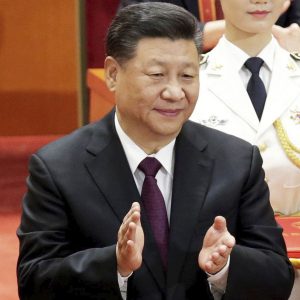
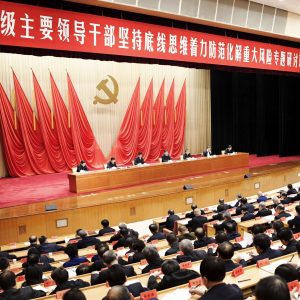
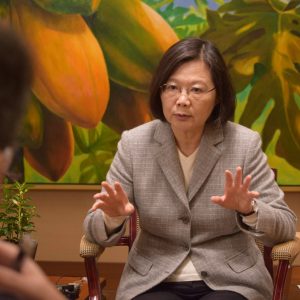
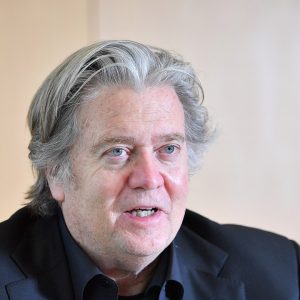





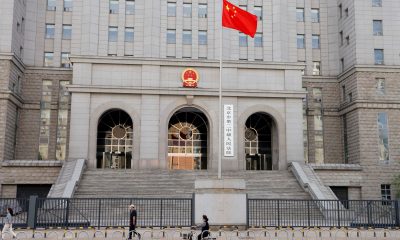

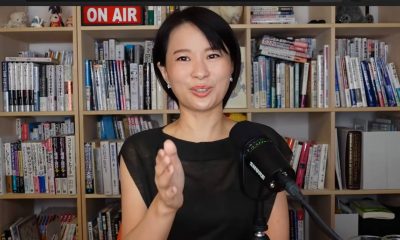

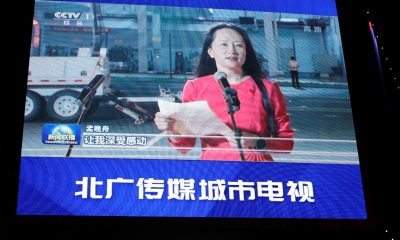

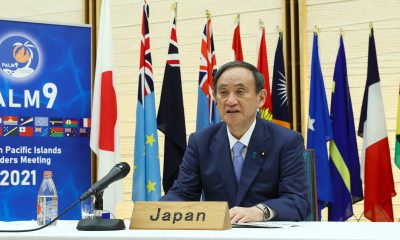

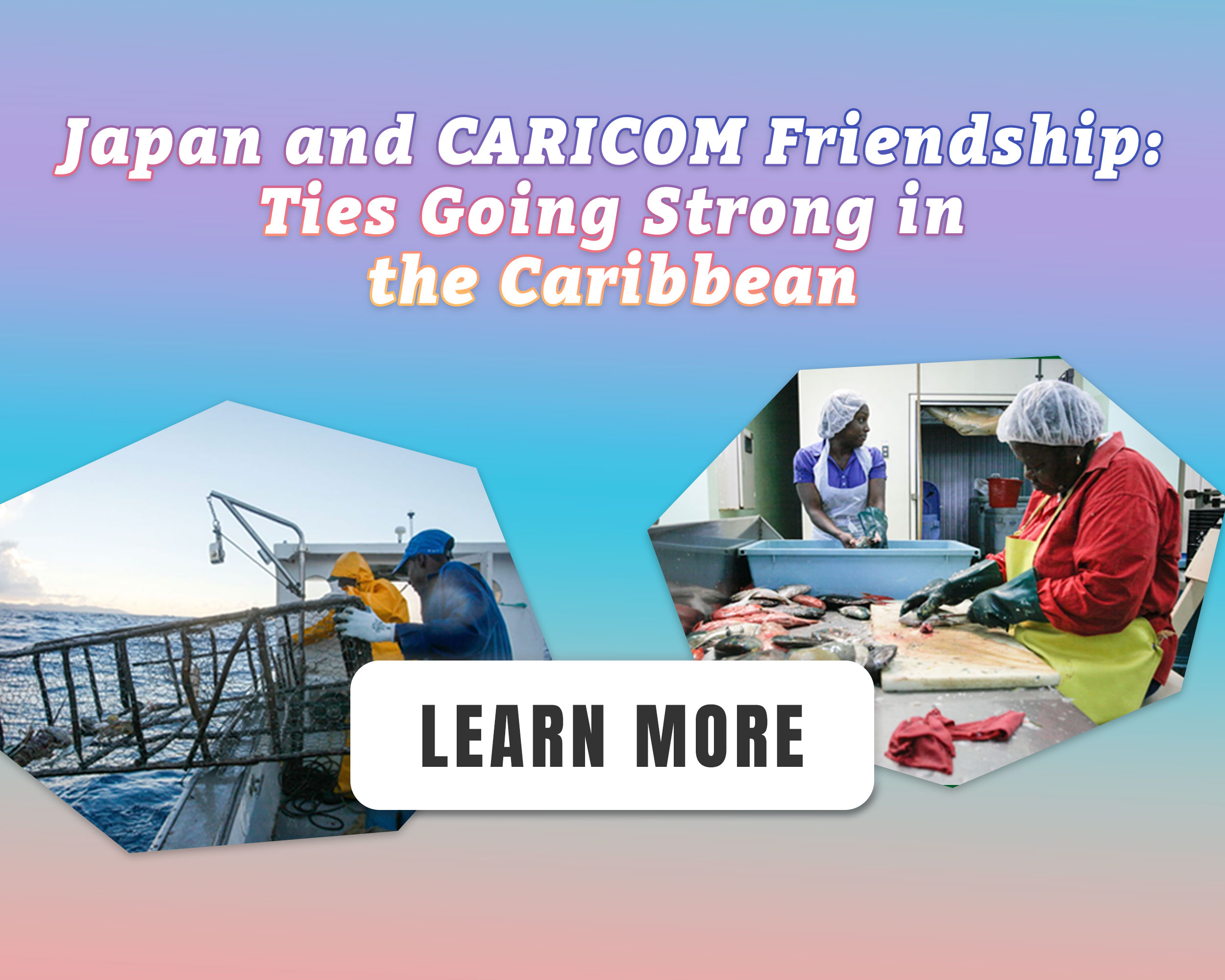
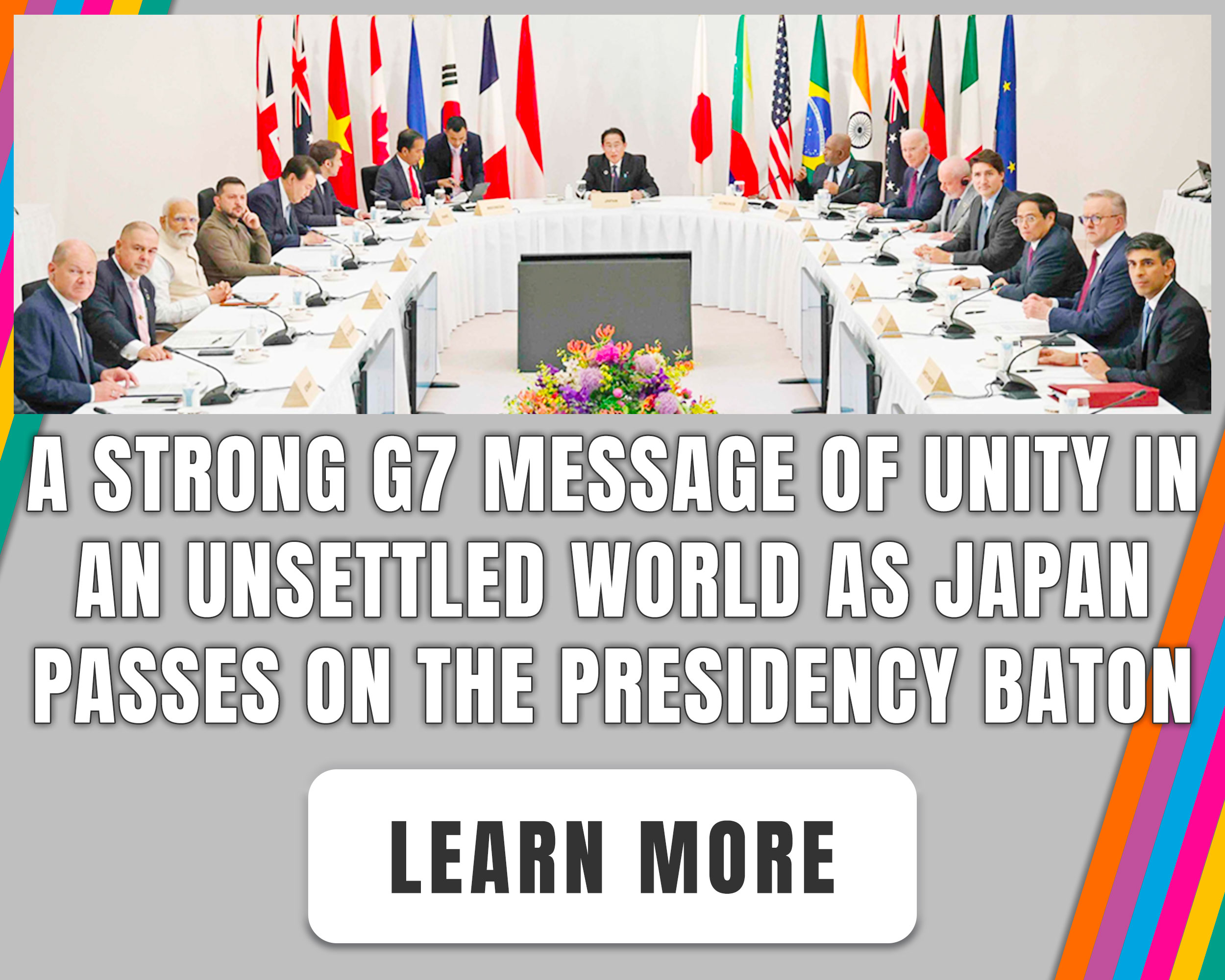
You must be logged in to post a comment Login